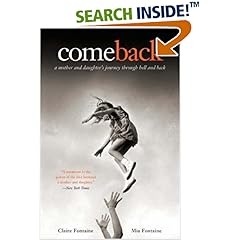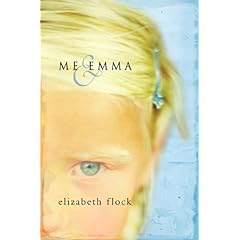The title characters in
Me & Emma are very nearly photographic opposites--8-year-old Carrie, the raven-haired narrator, is timid and introverted, while her little sister Emma is a tow-headed powerhouse with no sense of fear. The girls live in a terrible situation: they depend on an unstable mother that has never recovered from her husbands murder, their stepfather beats them regularly, and they must forage on their own for food. Stop here and you have a story told many times before, as fiction and nonfiction in tales like
Ellen Foster, or
I Know Why the Caged Bird Sings --stories in which a young girl reveals the horrors of her childhood.
Me & Emma differentiates itself with a spectacular finish, shocking the reader and turning the entire story on its head. Through several twists and turns the reader learns that things are not quite the way our narrator led us to believe and everything crescendos in a way that (like all good thrillers) immediately makes you want to go back and read the whole book again from the start.


